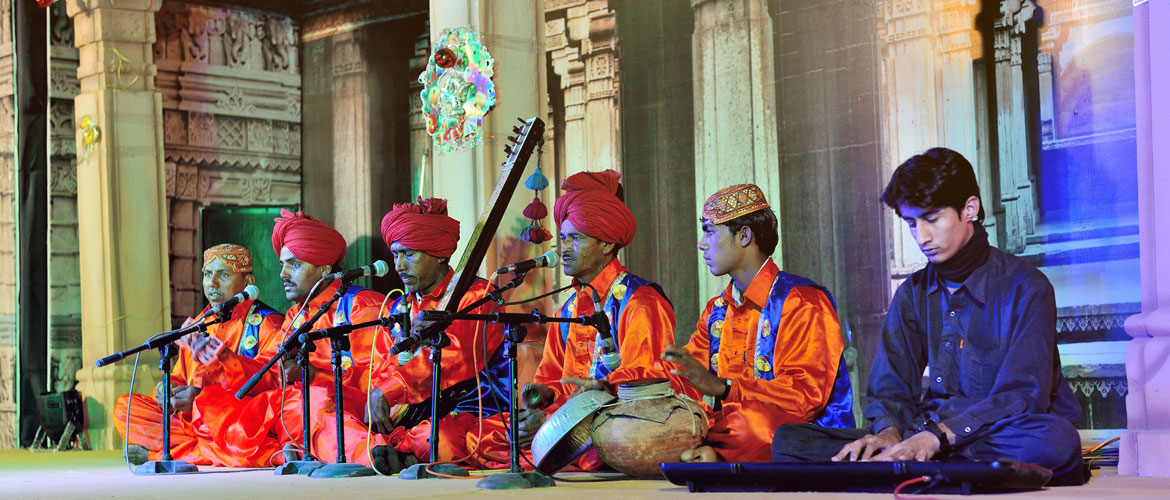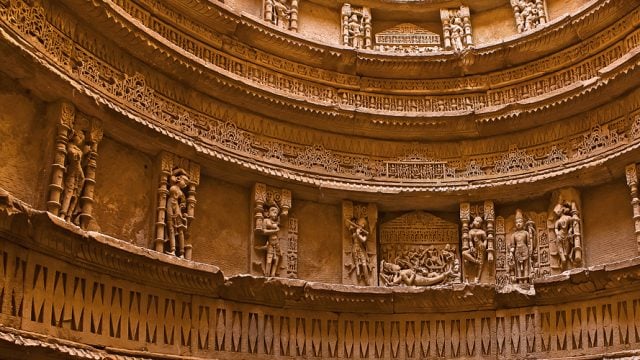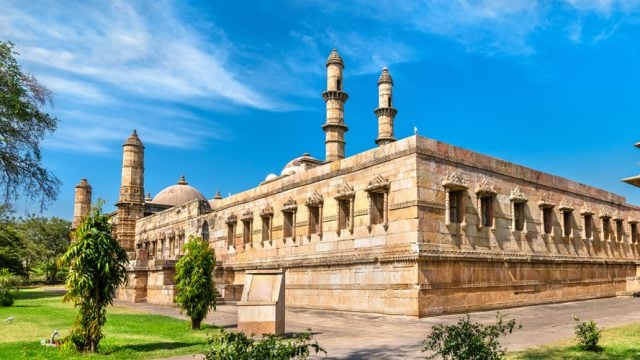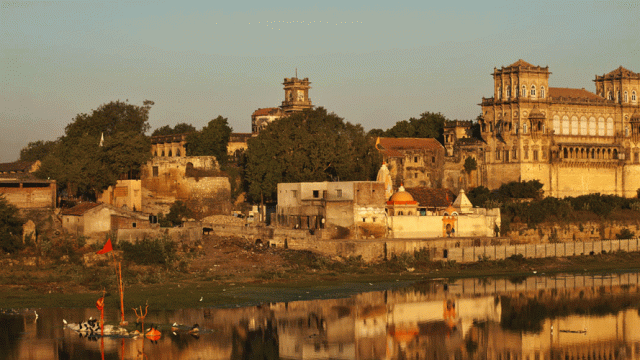Be it a religious or a government-sponsored one, festivals in Gujarat are known for their cheerful atmosphere,
Navratri

Enjoy a glimpse into traditional Gujarati culture and lifestyle during the Navratri festival. Observed across the state, the nine-day festival is dedicated to Goddess Durga. By day, the faithful offer prayers to the Goddess. At night, everyone gets together to perform the Garba and Dandiya (dancers use small sticks for the latter). The spectacle of groups of men and women dressed in colourful traditional costumes and finery, and whirling away in circles, has to be seen to be believed. Earlier held within families and friends, now the dance programmes have exploded to large social gatherings. Usually, observed in Sep/Oct.
Makar Sankranti

Also known as Uttarayan, Makara Sankranti is observed across India in various ways. In Gujarat, it is heralded with the flying of kites. Preparation for the celebration begins days ahead, even months, with people visiting the ‘patang bazaars’ (kite markets) for the various kinds of kites, the specially prepared threads, and the wooden rollers. In Ahmedabad, the patang bazaar goes into business as early as November. On the day of the festival, no roof top remains vacant as kite-flyers gather in groups. The art lies not only in flying the kites but keeping one’s own kite safe while cutting the strings of kites flown by others. Sounds of cheer and dismay rent the air as strings are cut. Sometimes, the kite flying extends into the night, when bright white kites are flown. In many neighbourhoods, you will come across skilled flyers who send aloft their ‘tukkal’ with strings of brightly lit lanterns in a long line. Since 1989, Gujarat Tourism has been arranging an International Kite Festival during Makar Sankranti. Participants from across the globe arrive with their unusual shaped kites much to the delight of the spectators. Usually, observed on January 14/15.
Rann Utsav

Organised by Gujarat Tourism, the Rann Utsav is not only your window to Gujarati tradition and culture but also an opportunity to visit one of the unique tourist destinations of the state. Organised in the middle of the white sands of Kutch, the festival includes cultural programmes, food fiestas, handicraft and handloom sales, adventure sports, and wildlife viewing among other things. Include a full moon night in your itinerary if possible because this is the time when the Rann looks magical, lit by the bright orb. A huge tented colony in the middle of the Rann provides accommodation and other facilities for all. Usually, the festival extends over three to four months, between Nov/Dec and Feb/Mar. To attend the Rann festival, you have to travel to Dhordo, about 85 km from Bhuj, by road. Bhuj is connected with Mumbai by air; with Mumbai, Ahmedabad and other major towns by road and rail. Gujrat Tourism also offers package tours for the Rann Utsav. http://rannutsav.com/.
Modhera Dance Festival

The richly carved Sun Temple in Modhera was built under the patronage of Bhimdev I in 1027 AD. Every year, soon after Makar Sankranti, it forms the background to a dance festival organised by Gujarat Tourism. The three-day festival is attended by noted performers from across the country. Ahmedabad, the nearest airport is 101 km by road from Modhera. The nearest convenient rail head is Mehsana, 26 km by road from Modhera. Usually held in third week of January.
Janmashtami

Janmashtami or the festival commemorating the birth of Lord Krishna, is widely celebrated in Gujarat. Usually, the faithful fast on the day before and set up a vigil into the night until the time when Krishna is said to be born. Then an idol of baby Krishna is placed on a decorated cradle and worshipped. Next day, people offer their prayers to the idol and the fast is broken. It is also the day when people hold the ‘dahi handi’ festival. One of the best places to observe the celebrations is the Krishna Temple in Dwarka. Usually held in Aug/Sep.
festivals
India
culture





